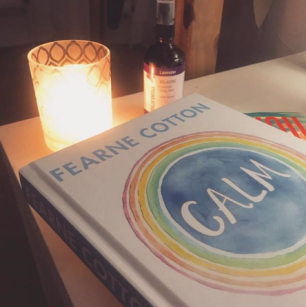In part 1, I talked about my personal experiences with stress and the effects it had on my life at the time. It is important to know that no matter how old you are, what your job is, or how good your life may be perceived to be, you can still experience stress. You are more than entitled to feel stressed at any given time. It is not a weakness if you are worried or are feeling emotional about something. You are completely justified in feeling how you feel. Please remember that.
In this part, I’ll share with you some top tips for how I’ve reduced my anxiety when I’ve felt overwhelmed and stressed in the past. Even the most mundane of tips will help you reach your calm place.
1. Write a List
Is everything you have to do just floating around in your brain and you have no idea where to start? Well, that must be stressing you out.. I talk to a lot of people about list writing. It baffles me how people can function without having their priorities listed in front of them! If you find yourself in a state of Sunday night anxiety (this is a genuine thing), then just write down what you need to do that is causing havoc in your mind.
List writing allows you to think, step-by-step, of how you are going to sort your s**t out, in turn reducing anxiety. I start every day at work with a list, prioritising work into a morning slot or afternoon slot. It is important to make your list flexible. Make sure that if something interrupts your plans, you can make time for it and re-schedule your other tasks. Not only does list writing help with organisation, but it ensures you manage your time effectively. If you have to think about how long you have to do each task, you aren’t going to get fixated on one thing and forget about everything else. Naturally, you will want to complete each task within a reasonable amount of time so you get the satisfaction of completing your list. Trust me… it works!
If you don’t believe me, read this article published by Psychology Today.
2. Clean Your Surroundings
Whether it’s the weekend and you have one million errands to run, you work from home, or you work in an office, clean! I’ll never start my day with dirty mugs left on my desk. Not only does cleaning help you to be more productive and get what you need to do done, but it also reduces stress. You will finish your cleaning sesh feeling more organised and accomplished, ready to start the next challenge without the overwhelming feeling that everything is a mess.

3. Take Breaks
Have you ever found yourself at your computer about to scream in frustration because you just have so much to do? My advice: breathe, write a list, make a cup of tea then get back to it. You won’t be able to do anything effectively if you are in a frustrated, stressed out haze. Take regular breaks and allow yourself time to breathe. Your mental wellbeing is far more important than anything on your to-do list. Put yourself first, always.
4. Exercise
You don’t need to do a full round of circuits or a marathon to get some air in your lungs. Just going for a quick jog or brisk walk will get the endorphins going and help you to combat your stress and anxiety. It is scientifically proven that exercise releases endorphins, resulting in your mood being improved and anxiety being reduced. I exercise 3-5 times per week in the form of either strength training, running, yoga or hockey. Schedule in just 15 minutes of exercise into your day and you will feel better for it. It also gives you a much-needed break from your to do’s.
5. And… Relax.
Once, you’ve done all of the above and have done your very best to alleviate your stress, it is time to light the candles. Lighting lavender scented candles and meditating might seem hippie drippy to a lot of people, but stepping out of your comfort zone and trying new things to better your wellbeing is the best thing you can possibly do. There are some fantastic mobile apps such as Calm, Headspace and Meditate, that are specifically designed to help you relax and reduce anxiety. Sparing just 10 minutes before bed for a meditation session will make all the difference. Lie on your bed, dim the lights and plug in your headphones. You’ll feel much more relaxed than when you started.
Yoga is also a great way to reduce stress-related anxiety. Mindbodygreen talk about some great yoga poses that you can do to help minimise anxiety. I prefer to watch videos such as Yoga With Adriene on YouTube as frankly, I have no idea what I’m doing when it comes to yoga! She walks through different poses in an easy way for all levels of ability and teaches you about breathing techniques. You will finish the video feeling like you’ve worked out but also calmer and ready to unwind.
6. Read a Book Before Bed
What’s more, read a book about mindfulness or tips to reduce anxiety. I will write a full blog post about some excellent self-help books I have read so stay tuned. But one book I ABSOLUTELY recommend is Fearne Cotton’s Calm. I am crazy about this book. Fearne is amazing. And if you read this book, you will see why. Her book is so down-to-earth and relatable, and she shares realistic tips on how to be calmer in day-to-day life.

7. Talk
If you find yourself in an endless state of worry, talk. There is always somebody who cares and who will listen, so make sure you reach out if you are feeling overwhelmed. Talking to someone about your stress may help you come to a solution to your problems. When I was stressed and unhappy at work, I confided in those closest to me and they gave me the best advice that eventually led me to a much happier place.
There are also many hotlines available such as the Samaritans hotline: 116 123.
I hope you’ve found this 2-part blog series useful. Leave a comment or give this post a like if you did! Also feel free to drop me an email if you’d like to talk about anything raised in this blog post – I will reply as soon as I can!
Thanks ✌🏼


February 3, 2019 at 12:30 pm
Makes good sense!
Well written easy to follow and sound advice.
LikeLiked by 1 person
February 3, 2019 at 12:39 pm
What about humour and laughing to reduce stress – works for me!
Stroking my pet pooches helps keep me calm too.
LikeLiked by 1 person
March 31, 2019 at 9:10 pm
I loved reading your 2 part blog post, it really resonated with me as i’m sure it did with many other women out there. I’ve really tuned into to my stress triggers and side effects recently, and with some minor life changes and techniques i’ve definitely made huge progress and feeling better every day. Hormones and contraception is such a drama for so many of us… the benefits and negatives are so extreme!! Thanks for sharing your experiences, i hope to share mine on my website soon too in the hope it will help others.
LikeLiked by 1 person
May 20, 2019 at 7:34 pm
Thanks Rosie!! Looking forward to reading yours 🙂
LikeLike